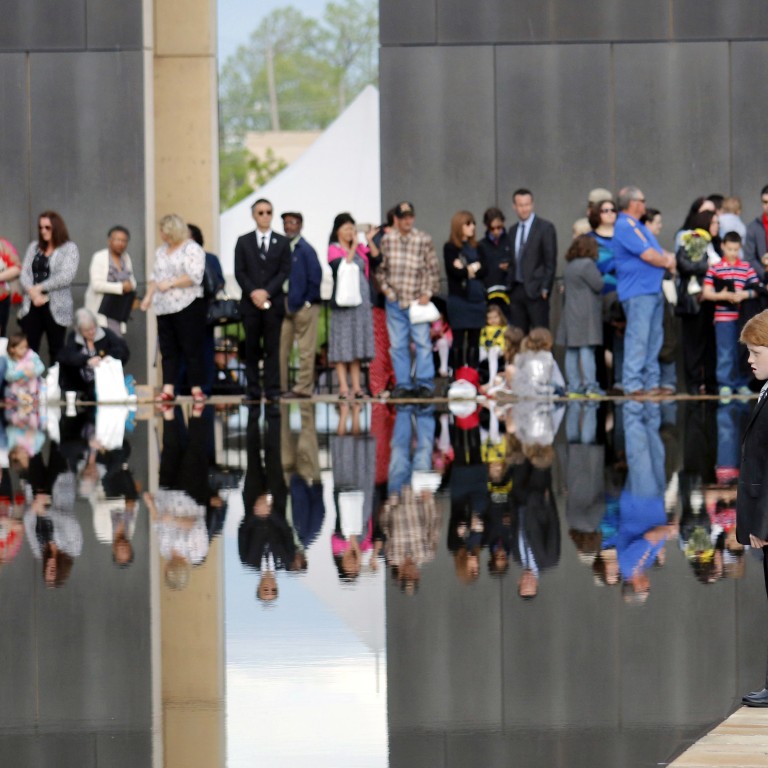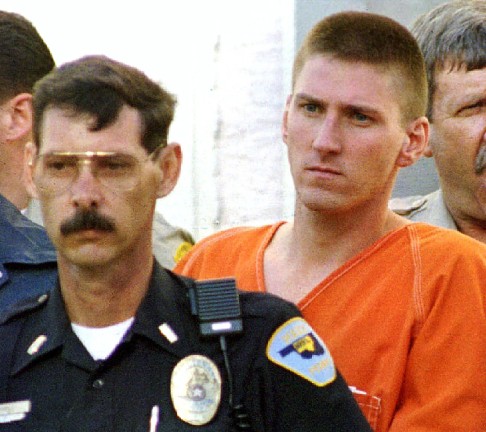
The power of renewal: Bill Clinton hails Oklahoma City, 20 years after bombing
Thousands of people gathered to commemorate the 20th anniversary of the Oklahoma City federal building bombing that killed 168 people, which was the deadliest terrorist attack on US soil until the September 11 attacks six years later.
Former President Bill Clinton, who was in office when the attack occurred, spoke at Sunday’s service at the Oklahoma City National Memorial & Museum, where the Alfred P. Murrah Federal Building once stood.
“Oklahoma City, you have chosen well,” Clinton said. “For 20 years you have honoured the memories of your loved ones. You have inspired us with the power of renewal.”
Clinton said the city has recovered from the terrorist attack “in the face of mad, crazy people who think that differences are all that matter.”
“The whole world needs you now,” the former president said in reference to other deadly terrorist attacks that have occurred around the world.
Memorial officials estimated that 2,500 people attended the observance.


The service started with a 168-second moment of silence to honour each of those who died in the April 19, 1995 bombing. It concluded about 90 minutes later with survivors and tearful relatives of the dead reading the names of those killed.
“This was a place of unspeakable horror and tragedy,” said Frank Keating, who completed his first 100 days as Oklahoma’s governor the day before the attack. “How some evil individual would do what he did ... is unforgiveable and absolutely unimaginable.”
“The agony was consistent. The agony appeared never to end,” Keating said.
After the service, LaDonna Battle and her family were standing between two of the 168 metal and glass chairs that now stand as a testament to those who were killed. The two chairs were inscribed with the names of her parents, Calvin and Peola Battle, who were arranging to receive Social Security benefits when the bomb detonated.
“We’re completing a journey with steel hearts. We’re rebuilding our lives.” LaDonna Battle said.
Dr Rosslyn Biggs said that every day when she goes to work as a federal government veterinarian she is reminded of her mother who was killed in the Oklahoma City bombing .
Biggs has the same job once held by her mother, Dr Margaret L. “Peggy” Clark, as a food safety veterinarian at the US Department of Agriculture. She interacts often with some of the people who worked with and recall her mother’s professionalism.
“I remember her spirit and her dedication,” Biggs said as she and other family members gathered around the empty chair bearing her mother’s name which was adorned with flowers.
“It’s wonderful to see that people still remember and still care,” Biggs said.
In a statement, President Barack Obama offered condolences to the victims’ families and thanked first responders who risked their lives after the bombing, law enforcement and prosecutors who brought the perpetrators to justice and ordinary men and women in Oklahoma for their resilience.
“If those murderers hoped to terrorise the American people that day, to break our spirits or shatter the bonds that unite us, then they completely and utterly failed,” Obama said.
Timothy McVeigh, a US Army veteran with strong anti-government views, carried out the bombing as revenge for the deadly standoff between the FBI and members of the Branch Davidian sect in Waco, Texas, on April 19, 1993 — exactly two years before Oklahoma City.
McVeigh was convicted on federal murder and conspiracy charges in 1997 and executed in 2001.
His Army buddy, Terry Nichols, was convicted on federal and state bombing-related charges and is serving multiple life sentences in a federal prison.
